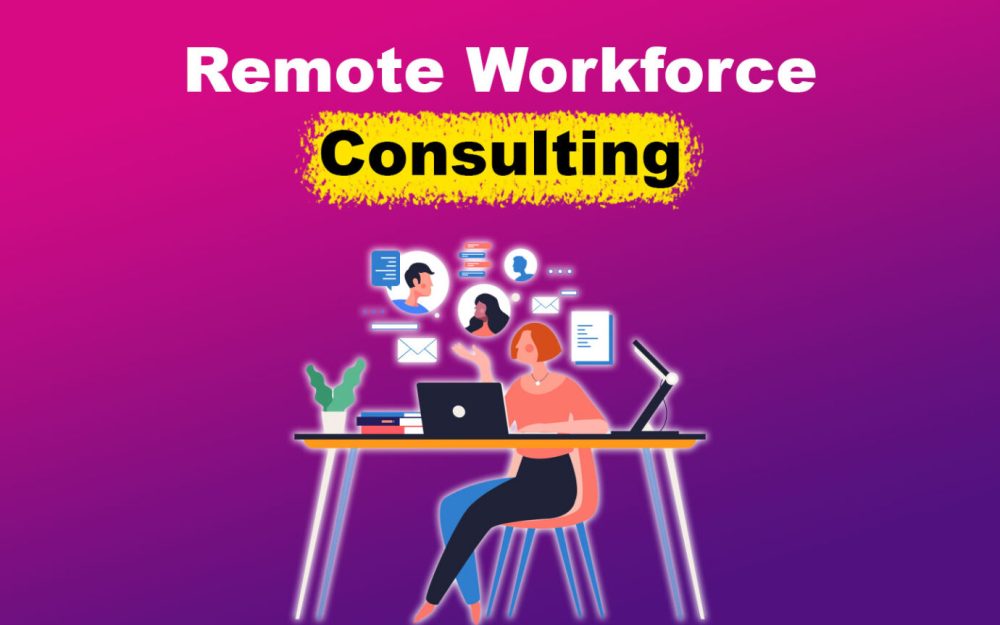Remote consulting has become essential in today’s business landscape, driven by technology and the shift toward flexible work environments. This transition offers exciting opportunities but also presents unique challenges, from maintaining effective communication with clients to staying productive without the structure of a traditional office. Here, we explore the essential tools and best practices for remote consulting success.
Key Digital Tools for Remote Consulting
A strong digital toolkit is crucial for remote consultants to deliver high-quality service and stay connected with clients. Let’s look at some essential tools that facilitate smooth operations and help consultants work efficiently from anywhere.
1. Client Communication Platforms
Effective communication is the backbone of any successful consulting engagement. Video conferencing and messaging tools like Zoom, Microsoft Teams, and Google Meet allow consultants to conduct meetings, presentations, and collaborative sessions with clients in real-time, making complex discussions more manageable. These platforms offer a sense of connection and foster engagement, even without face-to-face interaction.
Instant messaging platforms like Slack and Microsoft Teams also play a valuable role in keeping communication flowing. Quick messaging enables real-time clarification, minimizes delays, and enhances collaboration.
2. Document Sharing, Collaboration, and Proposal Templates
Document sharing and collaborative platforms are critical for remote consultants to work seamlessly with clients and colleagues. Cloud-based tools like Google Workspace and Dropbox ensure secure, convenient file-sharing, and real-time collaboration. With Google Workspace, for example, multiple people can edit a document or spreadsheet simultaneously, making it ideal for projects that require frequent feedback and teamwork.
Additionally, having access to well-designed templates for essential documents can streamline workflows and maintain professionalism. Consultants, for instance, often use proposal templates to save time and ensure clarity in client-facing materials. Slideworks provides a range of resources that help consultants create polished consulting proposals, simplifying this process and ensuring a strong, professional impression in every client interaction.
Establishing Effective Communication Practices
Communication is particularly important for remote consultants, as it bridges the distance and keeps clients engaged throughout a project. Here are some strategies to enhance communication with clients:
- Set Expectations Early: At the outset of a consulting project, discuss preferred communication channels and the frequency of updates. Outline when you’re available for calls, how often clients can expect updates, and the primary platforms you’ll use. Clear expectations help clients feel confident that their project is in good hands and eliminate unnecessary back-and-forth.
- Regular Check-ins and Updates: Regular communication, such as weekly or bi-weekly check-ins via video or email, is essential in remote consulting to ensure everyone stays aligned. Even a brief update reassures clients that their project is progressing and allows for adjustments based on their feedback.
- Prioritize Clarity and Transparency: Remote communication requires consultants to be as clear as possible. Visual presentations, well-organized documents, and simple language help prevent misunderstandings, particularly when delivering complex information.
Time Management and Productivity Techniques
Remote consulting offers flexibility, but it also demands a disciplined approach to time management. Here are strategies to help consultants stay productive and organized.
1. Create a Dedicated Workspace
A designated workspace helps delineate “work mode” from personal time, promoting focus and efficiency. This space should be quiet, comfortable, and equipped with everything you need for a productive day. An organized workspace also contributes to a professional atmosphere, which is important for video calls and other virtual client interactions.
2. Set Work-Life Boundaries
Working remotely can blur the lines between personal and professional life. Establishing a clear work schedule and informing clients of your availability helps you balance work hours with personal time, reducing the risk of burnout. Setting work hours and turning off notifications outside of these times can further protect your personal time while ensuring focused engagement during work hours.
Building Client Trust Remotely
Building trust and credibility without face-to-face interaction can be challenging, but these practices can help establish and maintain strong client relationships.
1. Deliver Consistent Quality and Value
Remote consulting success often depends on meeting deadlines, providing consistent results, and exceeding client expectations. By delivering quality work and adhering to commitments, consultants can build a reputation for reliability and establish a foundation of trust.
2. Use Video for Personal Connection
While emails and messages are convenient, video calls offer a more personal way to connect with clients. Video enables clients to see your dedication and professionalism, which builds trust and rapport. Use video calls for significant meetings, project kick-offs, and regular updates to foster stronger connections.
Adapting to Client Feedback and Continuous Improvement
Gathering and responding to client feedback is essential in any consulting role, especially when working remotely. Remote consultants should proactively seek feedback to refine their approach and ensure clients are satisfied with the service provided.
- Solicit Feedback Regularly: At key project stages or upon completion, ask clients for feedback via email or a quick survey. This approach shows that you’re committed to their satisfaction and invested in continuously improving your service.
- Apply Feedback for Future Projects: Use feedback to enhance your processes, whether it’s adjusting deadlines, improving clarity, or refining proposal formats. This commitment to growth can lead to improved relationships and higher client retention rates.
Conclusion
Remote consulting requires a blend of effective tools, strong communication practices, and a focus on building client trust. By leveraging digital tools for collaboration and communication, implementing time management strategies, and maintaining professionalism, consultants can provide exceptional service from anywhere. These practices can enhance client relationships and deliver consistent results, positioning remote consultants for long-term success.
Ready to Transform Your Travel Experience? Schedule a free demo today
Explore Textify’s AI membership
Explore latest trends with NewsGenie
